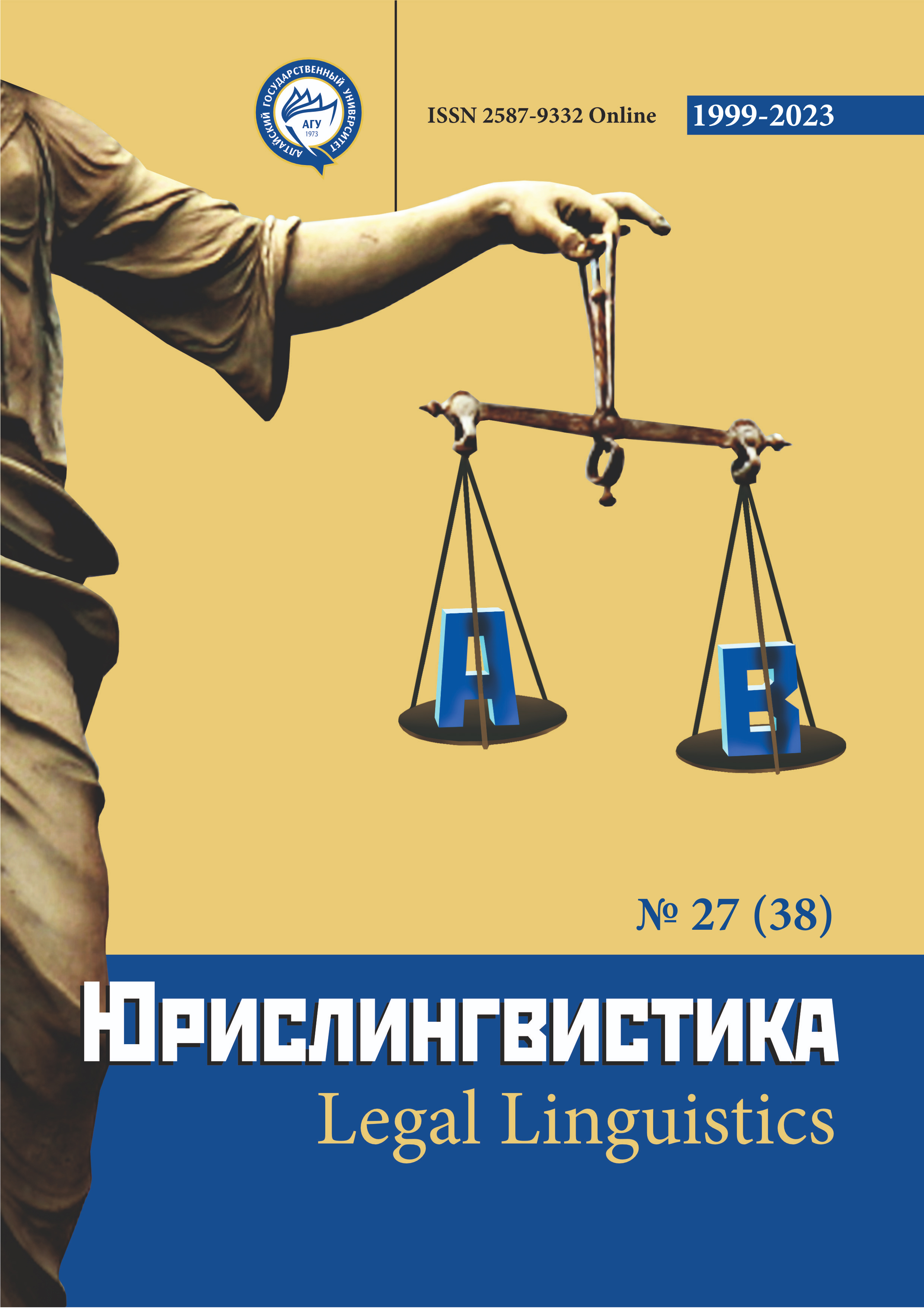Forensic Linguistic Expertise: Specifics of Evaluation in Criminal Proceedings
УДК 347.948 ББК 67.410.204.15
Abstract
The paper is about the research of the forensic linguistic expertise evaluation in criminal proceedings. The interest for forensic linguistic expertise grows yearly. This is conditioned by the introduction of additions to the Russian Criminal Code represented by articles 207.3, 284.2; by the constant growth of extremist crimes; by instances of forensic examinations made by incompetent linguists, etc. In this regard, the problem of evaluation of forensic linguistic expertise is quite relevant and requires an immediate and practical solution in particular. The article discusses the peculiarities of forensic linguistic expertise evaluation from the perspective of different subjects of evaluation, the process of forming their inner conviction and options for the final decision. We believe that one of the important stages of solving this problem is to determine the formal parameters of the expert opinion evaluation. These parameters will allow the subjects of evaluation to form an inner conviction regarding the acceptance of the conclusion of linguistic expertise as evidence. In addition to the existing recommendations for forensic linguistic examination, it is necessary to thoroughly assess the competence of the expert, the object of the examination, the list of terms, literature, etc. We believe that the formal criteria of forensic linguistic examination evaluation contribute to a more objective evaluation of the forensic examination, which is especially relevant for the subjects of evaluation who meet the linguistic examination for the first time in the investigative or judicial practice.
Downloads
Metrics
References
Галяшина Е. И. Проблемы использования юридических знаний как специальных в уголовном судопроизводстве / Теория и практика фундаментальных и прикладных исследований в сфере судебно-экспертной деятельности и ДНК-регистрации населения Российской Федерации: материалы Международной научно-практической конференции, Уфа, 13–14 октября 2022 года. – 2022. – С. 53-58.
Галяшина Е. И. Судебная лингвистическая экспертиза. М., 2022.
Кудрявцева А. В. Судебная экспертиза как институт уголовно-процессуального права: дис...д-ра юрид.наук: 12.00.09. Санкт-Петербург, 2001.
Кудрявцева А. В., Лившиц Ю. Д. Вопросы использования специальных познаний в уголовном процессе. Челябинск, 2001.
Кукушкина О. В., Сафонова Т. Н., Секераж Т. Н. Методика проведения судебной психолого-лингвистической экспертизы материалов по делам, связанным с противодействием экстремизму и терроризму. М., 2014.
Моисеева Т. Ф. Компетентность судебного эксперта как определяющий фактор предупреждения экспертных ошибок / Вестник Московского университета МВД России. – 2015. – № 3. С. 48-54.
Петрухина А. Н. Оценка заключения эксперта в уголовном судопроизводстве: монография. М., 2013.
Россинская Е. Р., Галяшина Е. И. Настольная книга судьи: судебная экспертиза. М., 2014.
Самутичева Е. Ю. Заключение эксперта и его оценка в уголовном процессе (сравнительно-правовое исследование): дис... канд. юрид. наук: 12.00.09, М., 2016.
Copyright (c) 2023 Наталья Папоян

This work is licensed under a Creative Commons Attribution 4.0 International License.
The authors, which are published in this journal, agree to the following conditions:
1. Authors retain the copyright to the work and transfer to the journal the right of the first publication along with the work, at the same time licensing it under the terms of the Creative Commons Attribution License, which allows others to distribute this work with the obligatory indication of the authorship of this work and a link to the original publication in this journal .
2. The authors retain the right to enter into separate, additional contractual agreements for the non-exclusive distribution of the version of the work published by this journal (for example, to place it in the university depository or to publish it in a book), with reference to the original publication in this journal.
3. Authors are allowed to post their work on the Internet (for example, in a university repository or on their personal website) before and during the review process of this journal, as this may lead to a productive discussion, as well as more links to this published work (See The Effect of Open Access).











